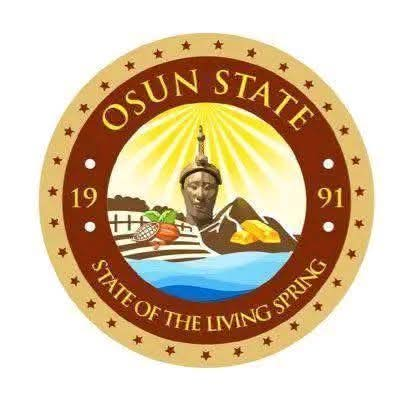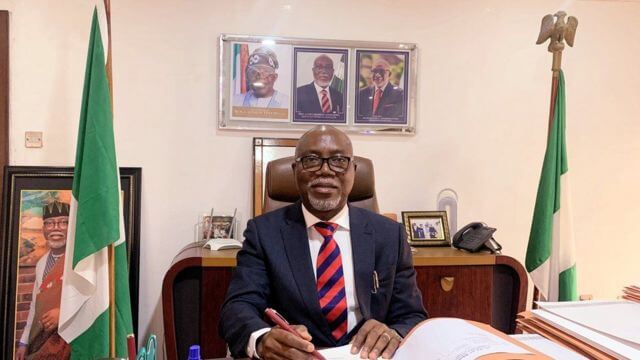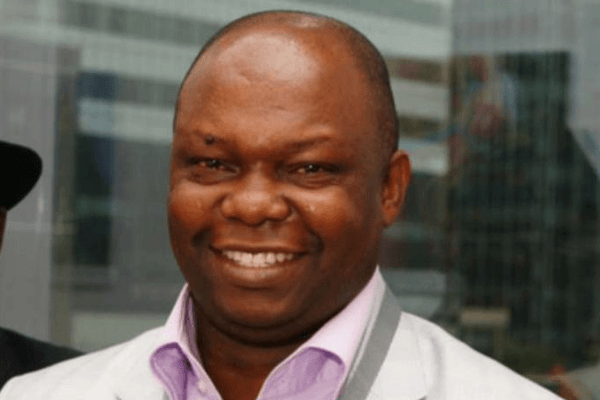In the build up to the 2019 general elections, Victor Ndoma-Egba and Nsima Ekere had a personal choice to make within the context of the proverbial scenario of “a bird in the hand is worth two in the bush”. With their eyes on elective positions, their respective offices of the Chairman and the Managing Director of Niger Delta Development Commission were the bird in their hands.
The birds in the bush, for the Senior Advocate of Nigeria was a return to the Senate, which he was the Majority Leader until 2015, while that of Ekere was the governor’s office of Akwa Ibom State, which he has been hunting for since 2006. To catch the birds in the bush, both of them threw away the bird they had in hands. In the end, the result of the 2019 elections used the two politicians to exemplify further that the proverb, to a large extent, is still worthy for a guide.
The NDDC’s former helmsmen came to mind following series of interwoven events with strands on the NDDC since they left office for election January last year. There has been no substantive board since then. The management of the commission has been in the hands of interim management committees, one after another, since that January. There is presidential directive for forensic findings of the finances of the commission from its creation in 2000.
Also, following allegation financial inappropriateness, the two chambers of the National Assembly are currently and separately investigating the five-man interim management committee. As the investigating panels of the national legislative bodies were getting set for findings as to who did what, why, when and how, the acting Executive Director in charge of finance, Ibanga Etang, suddenly died.
Etang’s death is unsurprisingly not without its own controversy. The cause of the death was initially being pussy-footed as to whether he died of coronavirus or human machination. Governor Udom Emmanuel of Akwa Ibom State, who is being celebrated everyday by his admirers and adversaries for putting paid to what was alleged to be politically motivated killings before his time, has promised to dig deep into the death to unravel the causative agents and then get it to face the wrath of the law, if it is a legal person.
Given what was usually making news at their time, Ekere and Ndoma-Egba’s era at the NDDC came to many minds with irresistible force of nostalgia. Nostalgic sentimentality is an everyday psychology that overpoweringly comes to the minds of the living when forced by events to compare apparent goodness of the past and seeming badness of the present; it is revolting in the mind owing to the assumption that retrogression has taken the place of progression.
There is no doubt that since its inception we have been having more bad news than good news as headlines on NDDC, but it would be uncharitable, as it would smacks of selective amnesia, to deny that the commission has not been lifting the lot of the people of the Niger Delta, which the commission was actually set up for. The truth is that from the days of Onyema Ugochukwu and Godwin Omene to the days of Ndoma-Egba and Ekere, the commission has added its quota to the development of the region, but it has not reached where it ought to reach.
It is also true that every administration at the NDDC has had its fair share of controversy, which is undoubtedly one of the characteristics of Nigerian public offices. The controversies differ from one era to another. In the days of Ndoma-Egba and Ekere, it was more about competition between some state governments in the region and the agency. The competition was fiercer in Akwa Ibom State, where Ekere and Udom were competing to outsmart themselves in terms of infrastructural development. It was a battle between a pseudo-governor for nine states that make up the NDDC and a governor of one state of Akwa Ibom and it was fueled more, than anything else, by bad blood of partisan differences.
Unlike the grass suffering whenever two elephants fought, the roads, as well as other social amenities, in Akwa Ibom were victories. So, it was a bad fight with fruitful fortunes to the people. Today scores of completed NDDC projects abound in all nooks and crannies of the state, just it is in Rivers and Bayelsa, Edo and Delta, Cross River and Edo, Imo and Abia States
Though Akwa Ibom benefitted more from NDDC under Ekere’s directorship, it was not a case of favouritism and nepotism; it was the righting of wrongs, incidentally by an indigene of the state at a time he was at the helm of the commission. On issues of appointment of the board chairman and the managing director of the commission, as well as its budgetary allocations to states, the law setting up NDDC places premium on oil producing capacities and alphabetical arrangement of states within the NDDC. The budgetary allocation, which is based on oil producing status, puts Akwa Ibom on top in that it is currently the highest oil producing state. Before Ekere’s era, Akwa Ibom was a victim of injustice.
One of the plagues hindering the progress of the NDDC from the beginning has been non-remittance of statutory allocations to the commission by the Federal Government and its relevant agencies. As at 2017, the Federal Government was owing NDDC not less than N 1.8 trillion, while Ecological Fund was indebted to the commission to the tune of N45 billion. In April of that year, Ekere petitioned President Muhammadu Buhari and the Senate President for payment of the debt.
In his column in The Guardian issue of June 6, 2017, Ray Ekpu, in a piece, aptly titled: “NDDC Vs stiff-necked debtors,” made reference to the debt and opined that the commission’s destination to envisaged “Eldorado is still far away because the commitment to the region by various federal governments over the years has been half-hearted to put it lamely.” Referring to the management of the commission then, the iconic journalist remarked: “We are lucky to have an experienced team at the NDDC totem now.” Premising on Ndoma-Egba and Ekere’s sterling professional career in public and private services, he added: “With a team like that we have a good chance, all things being equal, of getting reasonable results from their exertions at the Commission.”
At the time Ndoma-Egba and Ekere were on the steering of the agency, just as it was at inception under Ugochukwu and some other administrations, there was no supervising minister. NDDC was run by a substantive management put in place in accordance with the law that set up the commission. That, in addition to Ekere’s inherent character of courage in taking hard decisions, might have accounted for why the former managing director was able to ask for the rights of the commission. The era of Ndoma-Egba and Ekere may still remain in our minds, but let it not evoke nostalgia. An interim management committee, just like the anomalous supervising minister, is making mockery of the law that gave birth to the NDDC.
Since siphoning of public funds is unarguably one of the banes of development in the Nigerian society, frequent pointing of fingers, either fictitiously or factually, has also become cheap jingles by a number of public office holders for populist reckoning. Since there must always be fingers to point to, real or imagined, it is also a smokescreen for illegality, perpetration of another round of public looting and diversion of public attention from dismal performance. Even as glittering as the about-to-be-unveiled permanent edifice of the commission appears, it would not be surprising that the glitz is not so golden, as a look beyond the surface may expose rots beneath the magnificent structure.
More than ever, since its creation 20 years ago, the NDDC has become a morass of rot in the last four months. Interference by top politicians, though it has always been there, is deepening more than before. Members of staff of the organization have thrown political neutrality, which is one of the canons of civil service, to the Atlantic Ocean. Worst still, the headquarters of commission is now a no-go area as it is said to be habouring the deadly virus called COVID-19. Or, is the ravaging COVID-19 just providing a cover up for man-made viruses at the commission?
The suspension of the law under the guise of forensic auditing is a clear pointer that the commission is progressively on the path of retrogression. A body that has what it takes to undergo the task of auditing the accounts of the commission can hardly be affected by a substantive board. It is quite encouraging that Ndoma-Egba, whose time at the commission would also be one of specimen for screening, has publicly lent his voice for thorough auditing of the commission.
It is pretty difficult to agree with the Punch newspaper editorial of June 10, 2020 that constituting a new board is a “hard choice”. It could only be hard if the presidency and the National Assembly are compromising or insensitive and aloof to what is happening at the NDDC.
Except the illegality is halted immediately, the retrogressive movement would continue. The best way to reverse the retrogression is not by executive fiat but by adherence to the law that set up the commission, with a view to making NDDC the real NDDC – in terms of its management and statutory finances accruing to the commission. Since it is the needful, in terms of letters and spirit of the law, it is not, in any way, hard to do. After all, once upon a time, though without certain shortcomings, there was an NDDC and that was when NDDC was run, to a reasonable extent, in accordance with the law.
Ekanem writes from Lagos through nsikak4media@gmail.com.





